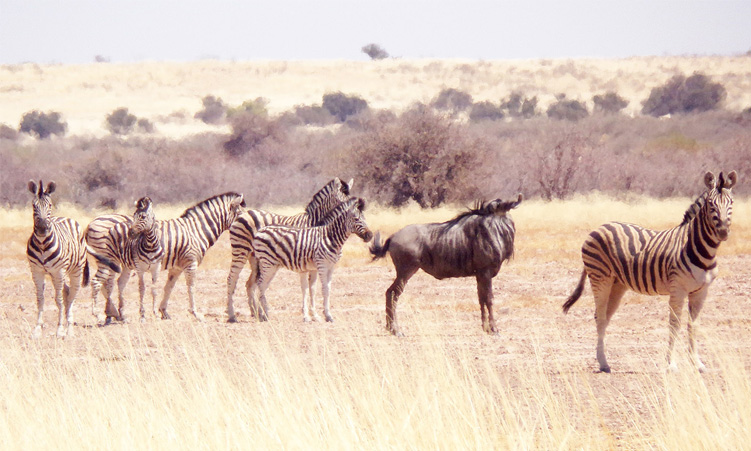Namibia is turning wild animals into scapegoats for its problems.
This was said by People for the Ethical Treatment of Animals (Peta) senior vice president Jason Baker in a letter to prime minister Saara Kuugongelwa-Amadhila.
The organisation is raising questions about the government’s initiative to cull wildlife for drought-relief meat.
Baker is pleading with the government to re-evaluate the country’s “blatantly short-sighted” plan to slaughter 700 additional wild animals, including 83 elephants, 30 hippos and 300 zebras.
The organisation is the largest animal rights organisation in the world and has more than nine million members and supporters globally.
Namibia has already killed over 150 wild animals for meat so far, to feed the country’s starving population during the drought and to resolve conflicts between humans and other animals.
“The decision is not based on sound science, but rather on the killing of these animals,” Baker says.
“The killing of these animals could lead to imbalances and worsen suffering, since every species plays a vital role in ecosystems,” he warned in a statement yesterday.
Baker said the world has been made aware of the risks associated with killing and eating wild animals by Covid-19, Severe Acute Respiratory Syndrome, HIV, Ebola and other zoonotic diseases.
He said the Ministry of Environment, Forestry, and Tourism is allowing trophy hunters to kill animals for a fee.
“There are also accusations that wildlife are being killed for votes by creating the illusion of providing solutions to complex problems in key areas important on the electoral map,” he said.
Baker asked Namibia to consult with wildlife experts and climate scientists on creative life-saving efforts that could alleviate the issues Namibia’s wildlife faces.
“This includes ways to reduce the burden of drought and address conflicts between humans and wildlife,” he said.
“Since animal agriculture is responsible for nearly a fifth of global greenhouse gas emissions, Namibia may want to consider trying to persuade the governments of the countries with the greatest meat consumption, such as Australia and the United States and regions producing the most meat, such as Asia, to incentivise their respective publics to support vegan food production and vegan eating,” he wrote.
Baker said Namibia might wish to pressure China, India and the United States, the three countries with the largest emissions of greenhouse gases, to take more effective measures to reduce their environmental impact.
In response to PETA yesterday, environment spokesperson Romeo Muyunda said the ministry’s stance on the killing of the animals for food remains the same.
He said everybody is entitled to their own views and opinions but that does not mean the decision the country took is wrong.
“Some of these countries’ organisations which are speaking out don’t have wildlife in their country,” he said.
Muyunda asked what do these organisations base their advice and research on to guide how the country can use its resources sustainability.
“We have used our resources sustainability which resulted in various success in our countries conservation, socially and economically. We have laws and policies for sustainable practices in place and we encourage everybody to understand that we do follow our laws to ensure our resources are used according to the laws and policies,” he said
The spokesperson further urged international groups to not involve themselves in the situation Namibia is facing, as the country has methods in place that have impacted the country successfully.
Stay informed with The Namibian – your source for credible journalism. Get in-depth reporting and opinions for
only N$85 a month. Invest in journalism, invest in democracy –
Subscribe Now!






